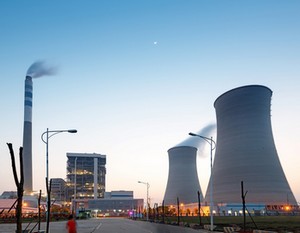Power and Energy: More Power to Your Elbow
 |
Nuclear power has had a few hiccups along its history and each time there is a bump on the road the powers-that-be try to regulate this.
In America in 1954 Congress passed the first legislation which “permitted the use of atomic energy for peaceful purposes”. In essence it removed the government monopoly and allowed private commercial organizations to research and develop nuclear energy. So, without heavy government restrictions, the industry took off, until on March 28, 1979 when an accident at Unit 2 of the Three Mile Island nuclear power station caused the regulations to be tightened.
Three Mile Island (TMI) was a partial nuclear meltdown and rated a five on the seven-point International Nuclear Event Scale. The Nuclear Regulatory Commission (NRC), which became a separate agency in 1975, now had to recognize that its theoretical predictions had come to pass. Their following report uncovered a series of mechanical failures and human errors and as a result devoted itself to imposing new safety regulations and increasing the use of reactor simulators, and assessing control rooms and their instruments. However, as with most bureaucracy and government organizations, it took a long time to implement and whilst they were deliberating the next major nuclear power station occurred.
In April 1986, Unit 4 of the nuclear power station at Chernobyl in the USSR, exploded with such force that the reactor top blew off. Once again human error was to blame, since operators had turned off the plant’s safety systems and then lost control of the reactivity in the reactor. Since TMI, the NRC had been discussing regulatory procedures and problems and Chernobyl caused them to tighten them even further.
The next “big one” was in March, 2011 where three reactors at the Fukushima Dai-ichi plant, Japan ruptured after a magnitude 9 earthquake, 70km off the coast at a depth of 30km, caused a tsunami which travelled 10km inland. Three years after this event, Japan’s newly formed Nuclear Regulation Authority (NRA), has been developing new safety standards. Rather like the NRC before TMI, the Japanese regulators had been complacent about their safety record and were slow to react. It is only now, with rising energy costs (importing coal and gas using a weak Yen) and the fear that public opinion maybe moving against restarting the reactors, that there is a sense of urgency. With these new regulations the NRA are confident that they can get the two reactors, which were previously switched on in the summer of 2012 for one year, switched back on again soon.
Despite these regulations and the increasing safety of nuclear reactor technologies, the anti-nuclear lobby around the world has considerable strength and unless these issues and safety concerns are addressed they may just win the fight as they did in Germany.
|